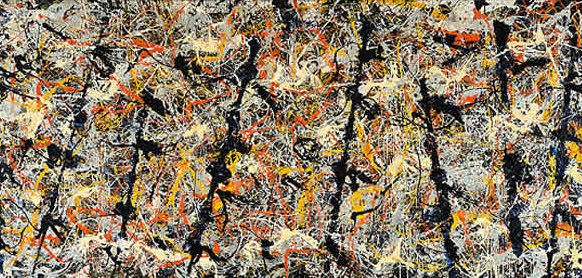
November 10, 2013, by Stephen Mumford
Playing with the Possible
The future contains many possibilities. While not everything is within our control, quite a lot is. We have a say in which of the possibilities become real. Not everyone sees all that is open to them, however. Some have a greater imagination than others and can see more of the possible. Imagination is a source of freedom and with it the mind is capable of creativity and ingenuity, useful throughout art, science and engineering.
When I studied logic, I quickly learnt that there were two kinds. The first was algorithmic, such as when you have to test for validity using truth tables. Here, one simply applies a method, using set rules in a standard sequence. At every step it is clear what action one should perform and then what the next step is. Anyone who has manually calculated long addition has followed such an algorithm (one places all the numbers on top of each other, adds the column on the right, carries any tens over into the next column, and so on). As long as you apply the method correctly, you know you will always end the process with a sum for any finite set of finite numbers. Truth tables in logic are easy to use because they have this algorithmic nature.
I found natural deductions in logic far more interesting and intriguing because they are non-algorithmic. Here, you learn the acceptable rules of inference but then have to judge which rule is best to apply when. At each stage, different possibilities are open and a choice has to be made. Once we have this, there are multiple possibilities open and we can start talking about ‘elegant’ or ‘efficient’ solutions. This made it far more exciting when one solved a natural deduction. The algorithmic logic seemed to be about following rules mechanically whereas in non-algorithmic logic one was using rules in creative ways for one’s own purposes, exploring the possibilities.
And just how big is that creative space of possibility? Consider it within something as simple as the game of chess. There are 20 possible first moves, to which the opponent can also make one of 20 moves. After just two moves, then, there are already 400 different games that could be played. And overall, there are 10120 possible games of chess, which some say is greater than the number of particles in the known universe. All these possibilities are open to the players, who between them choose which of those possible games to make actual. How many possibilities are there outside of the chess board, then, where there are even more variables to consider?
The human mind is a remarkable thing for it seems we are not mere algorithmic creatures. We don’t simply follow a programming. Douglas Hofstadter, in his huge book Gödel, Escher, Bach, suggests that we have an ability to ‘step outside the system’, reflect on what we are doing and change it for something else. A computer, in contrast, follows its program and is unable to step back and question why, or decide whether it should have a better program. The mind can do these sorts of things. We can bracket all our beliefs, desires, ambitions, plans, and have thoughts about them: whether they are appropriate, correct, and whether they will get us what we really want.
This is why it is plausible to say that creativity is the greatest achievement of the universe. It tells us that minds have evolved capable of playing within the space of possibilities and producing novelty, not merely following a path of inevitability. The future is our playground. We can explore the possible and choose what to make real. There are constraints, certainly, but the creative mind will be the one that understands all that is possible within them.

This reminds me of Bergson’s analysis of possibility.
Bergson argues that possibilities are contained inside actuality rather than the converse: the art critic can say that a symphony could have been composed differently, but only afterwards. The symphony couldn’t have been predicted at all before it was actually composed. Is it a matter of the high number of possibilities? Bergson would argue that it is not: the creation process has to be experienced and the duration for this process is not compressible, contrarily to the spatialised time of physics, which has no genuine duration and thus allows for predictions.